-
 The criminal offences against the safety of railway traffic are provided for in the new Criminal Code under Title VII “Criminal Offences against Public Safety”, Chapter I. Taking into account the critical observations expressed in our doctrine, starting with the year 2006, the lawmaker has amended and supplemented both two criminal offences as regards their names, and the content of the others. Regarding the content of criminal offences, we mention that the amendments made refer both to the capacity of active subject and to that of passive subject, which this time may belong to the employees of both State-owned and private-owned operators. Nevertheless, when identifying the most important social values and, subsequently, protecting them by means of criminal law rules, the lawmaker did not take into consideration the current legislation, both domestic and of the European Union regarding the safety of railway traffic and transports. Thus, the most important European and domestic regulations in this field, which had to be taken into consideration in the activity of legal individualization of criminal law penalties, are the Directive 2004/49/EC of the European Parliament and of the Council of 29 April 2004 (the Railway Safety Directive) and Law no. 55/2006 on railway safety. The critical observations and the proposals made by the author refer precisely to the need to adapt the Romanian railway safety legislation to the European Union legislation.
The criminal offences against the safety of railway traffic are provided for in the new Criminal Code under Title VII “Criminal Offences against Public Safety”, Chapter I. Taking into account the critical observations expressed in our doctrine, starting with the year 2006, the lawmaker has amended and supplemented both two criminal offences as regards their names, and the content of the others. Regarding the content of criminal offences, we mention that the amendments made refer both to the capacity of active subject and to that of passive subject, which this time may belong to the employees of both State-owned and private-owned operators. Nevertheless, when identifying the most important social values and, subsequently, protecting them by means of criminal law rules, the lawmaker did not take into consideration the current legislation, both domestic and of the European Union regarding the safety of railway traffic and transports. Thus, the most important European and domestic regulations in this field, which had to be taken into consideration in the activity of legal individualization of criminal law penalties, are the Directive 2004/49/EC of the European Parliament and of the Council of 29 April 2004 (the Railway Safety Directive) and Law no. 55/2006 on railway safety. The critical observations and the proposals made by the author refer precisely to the need to adapt the Romanian railway safety legislation to the European Union legislation. -
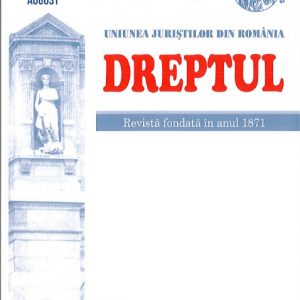 The impact assessment of transposing Directive 2008/99/EC on the protection of the environment through criminal law into the domestic laws of the 28 Member States of EU and of the related experiences legitimately raises the question: is the expansion of harmonization or the promotion of new instruments of application required for the achievement of the pursued objective in the future? This study is the answer offered by its signatory within The Second AIDP World Conference held in Bucharest, in the period 18–20 May 2016. The article establishes, in essence, the necessity to continue the efforts in this matter, on the one hand, by adequate measures of simplification and harmonization of the relevant regulations within the national laws, and, on the other hand, by continuing the concerns of consolidation, at EU level, of imposing the uniformisation and adoption of the instruments of protection of the environment through the criminal law.
The impact assessment of transposing Directive 2008/99/EC on the protection of the environment through criminal law into the domestic laws of the 28 Member States of EU and of the related experiences legitimately raises the question: is the expansion of harmonization or the promotion of new instruments of application required for the achievement of the pursued objective in the future? This study is the answer offered by its signatory within The Second AIDP World Conference held in Bucharest, in the period 18–20 May 2016. The article establishes, in essence, the necessity to continue the efforts in this matter, on the one hand, by adequate measures of simplification and harmonization of the relevant regulations within the national laws, and, on the other hand, by continuing the concerns of consolidation, at EU level, of imposing the uniformisation and adoption of the instruments of protection of the environment through the criminal law. -
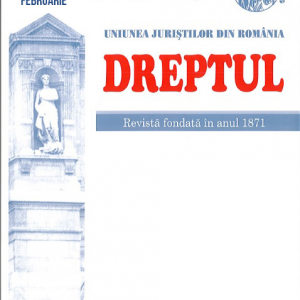 Economic offence can be defined as a deed that affects the legal regime established for carrying out economic activities. Unlike the Criminal Code of 1968, which dedicated the Title VIII of its special part to economic offences, the new Criminal Code contains only some economic offences, scattered among various titles and chapters.
Economic offence can be defined as a deed that affects the legal regime established for carrying out economic activities. Unlike the Criminal Code of 1968, which dedicated the Title VIII of its special part to economic offences, the new Criminal Code contains only some economic offences, scattered among various titles and chapters. -
 The most important normative act, which regulates the matter of establishing, organizing and dissolving societies, is Law No 31/1990. According to Article 1 (1) of the Law No 31/1990, for the purpose of carrying out activities for profit, natural persons and legal persons may associate and form companies with legal personality, in compliance with the provisions of this law. Article 1 (2) of the same law provides that the companies referred to in paragraph (1) based in Romania are Romanian legal entities. Violations of legal norms regulating the establishment, organization, modification and cessation of the activities of societies can be manifested in various forms and may, as the case may be, imply criminal, civil, disciplinary, tax liability etc. Taking into account the fact that the companies have a special importance in the field of business, the Romanian legislature criminalizes certain facts of violation of the norms provided by the Law No 31/1990.
The most important normative act, which regulates the matter of establishing, organizing and dissolving societies, is Law No 31/1990. According to Article 1 (1) of the Law No 31/1990, for the purpose of carrying out activities for profit, natural persons and legal persons may associate and form companies with legal personality, in compliance with the provisions of this law. Article 1 (2) of the same law provides that the companies referred to in paragraph (1) based in Romania are Romanian legal entities. Violations of legal norms regulating the establishment, organization, modification and cessation of the activities of societies can be manifested in various forms and may, as the case may be, imply criminal, civil, disciplinary, tax liability etc. Taking into account the fact that the companies have a special importance in the field of business, the Romanian legislature criminalizes certain facts of violation of the norms provided by the Law No 31/1990. -
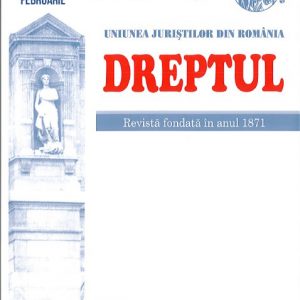 The offences regulated by the Law No 31/1990 on companies form a domain relatively less explored by the criminal law specialists and quasi-unexplored by the civil law specialists. In this study, the authors deal with those offences grouped within Article 272 of the above-mentioned law. These offences have a few specific elements. First, assuming there is a legal rule, the active subject is qualified, that is a person holding a certain quality of company member. Secondly, for two of the offences, the assumption of criminal rule is another rule, of the company law, to which the criminal law rule refers. By the fact that there is a situation such as the latter, but also because the assumptions of the other offences provided in Article 272 are part of the company law, first it is the duty of the civil law specialist to decode the meaning of the material rule, because a rigid application of the purely criminal vision in a field of the private law can lead to wrong conclusions, with serious consequences on the subjects of the offences. But, in order to cover the entire interpretative area, the same consideration must be given, according to the authors, to the criminal matters as well, where the role of the criminal law specialist steps in, so that the reader – either a civil law specialist or a criminal law specialist – forms a proper idea about a far too little investigated field.
The offences regulated by the Law No 31/1990 on companies form a domain relatively less explored by the criminal law specialists and quasi-unexplored by the civil law specialists. In this study, the authors deal with those offences grouped within Article 272 of the above-mentioned law. These offences have a few specific elements. First, assuming there is a legal rule, the active subject is qualified, that is a person holding a certain quality of company member. Secondly, for two of the offences, the assumption of criminal rule is another rule, of the company law, to which the criminal law rule refers. By the fact that there is a situation such as the latter, but also because the assumptions of the other offences provided in Article 272 are part of the company law, first it is the duty of the civil law specialist to decode the meaning of the material rule, because a rigid application of the purely criminal vision in a field of the private law can lead to wrong conclusions, with serious consequences on the subjects of the offences. But, in order to cover the entire interpretative area, the same consideration must be given, according to the authors, to the criminal matters as well, where the role of the criminal law specialist steps in, so that the reader – either a civil law specialist or a criminal law specialist – forms a proper idea about a far too little investigated field. -
 The offences provided by the Law No 31/1990 on companies form a domain relatively little explored by the criminal law specialists and quasi-unexplored by the civil law specialists. This study deals with the two offences grouped within Article 2721. These offences have a few specific elements. First, the active subject in the legal rule hypothesis is qualified, namely a person that holds a certain quality of company member. Secondly, for two of the offences, the hypothesis of criminal rule must be supplemented by the rules of company law regulating the issue of company securities. By the fact that the hypotheses of the other offences regulated in Article 2721 are part of the company law, first it is the duty of the civil law specialist to decode the meaning of the material rule, because a rigid application of the purely criminal vision in a field of the private law can lead to wrong conclusions, with serious consequences on the subjects of the offences. But, in order to cover the entire interpretative area, the same consideration must be given to the criminal aspects as well, where the role of the criminal law specialist steps in, so that the reader – either a civil law specialist or a criminal law specialist – forms a proper idea about a far too little investigated field.
The offences provided by the Law No 31/1990 on companies form a domain relatively little explored by the criminal law specialists and quasi-unexplored by the civil law specialists. This study deals with the two offences grouped within Article 2721. These offences have a few specific elements. First, the active subject in the legal rule hypothesis is qualified, namely a person that holds a certain quality of company member. Secondly, for two of the offences, the hypothesis of criminal rule must be supplemented by the rules of company law regulating the issue of company securities. By the fact that the hypotheses of the other offences regulated in Article 2721 are part of the company law, first it is the duty of the civil law specialist to decode the meaning of the material rule, because a rigid application of the purely criminal vision in a field of the private law can lead to wrong conclusions, with serious consequences on the subjects of the offences. But, in order to cover the entire interpretative area, the same consideration must be given to the criminal aspects as well, where the role of the criminal law specialist steps in, so that the reader – either a civil law specialist or a criminal law specialist – forms a proper idea about a far too little investigated field. -
 The offences regulated by the Law No 31/1990 on companies form a domain relatively little explored by the criminal law specialists and quasi-unexplored by the civil law specialists. This study deals with those offences grouped within Article 273. These offences have a few specific elements. First, the active subject of the legal rule hypothesis is qualified, namely a person that holds a certain quality of company member. Secondly, the hypothesis of criminal rule contains elements of company law, which can be found in other articles of the Law No 31/1990. By the fact that the hypotheses of the offences provided in Article 273 are part of the company law, first it is the duty of the civil law specialist to decode the meaning of the material rule, because a rigid application of the purely criminal vision in a field of the private law can lead to wrong conclusions, with serious consequences on the subjects of the offences. But, in order to cover the entire interpretative area, the same consideration must be given to the criminal aspects as well, where the role of the criminal law specialist steps in, so that the reader – either a civil law specialist or a criminal law specialist – forms a proper idea about a far too little investigated field.
The offences regulated by the Law No 31/1990 on companies form a domain relatively little explored by the criminal law specialists and quasi-unexplored by the civil law specialists. This study deals with those offences grouped within Article 273. These offences have a few specific elements. First, the active subject of the legal rule hypothesis is qualified, namely a person that holds a certain quality of company member. Secondly, the hypothesis of criminal rule contains elements of company law, which can be found in other articles of the Law No 31/1990. By the fact that the hypotheses of the offences provided in Article 273 are part of the company law, first it is the duty of the civil law specialist to decode the meaning of the material rule, because a rigid application of the purely criminal vision in a field of the private law can lead to wrong conclusions, with serious consequences on the subjects of the offences. But, in order to cover the entire interpretative area, the same consideration must be given to the criminal aspects as well, where the role of the criminal law specialist steps in, so that the reader – either a civil law specialist or a criminal law specialist – forms a proper idea about a far too little investigated field. -
 In this study, the author examines the relevant aspects for proper understanding of the regulations set out in a chapter of the new Romanian Criminal Code (Law no. 286/2009, as subsequently amended and supplemented) entitled “State border crimes”. It was noted that such a chapter has no counterpart in the Criminal Code regulations, which entered into force in 1969; this does not mean it is an absolute novelty in the Romanian legal landscape. The study makes an interesting comparison between the wordings included in the subdivision of the new Criminal Code and the ones in Government Emergency Ordinance no. 105/2001 and Government Emergency Ordinance no. 194/2002 which have served as inspiration for the legislator.
In this study, the author examines the relevant aspects for proper understanding of the regulations set out in a chapter of the new Romanian Criminal Code (Law no. 286/2009, as subsequently amended and supplemented) entitled “State border crimes”. It was noted that such a chapter has no counterpart in the Criminal Code regulations, which entered into force in 1969; this does not mean it is an absolute novelty in the Romanian legal landscape. The study makes an interesting comparison between the wordings included in the subdivision of the new Criminal Code and the ones in Government Emergency Ordinance no. 105/2001 and Government Emergency Ordinance no. 194/2002 which have served as inspiration for the legislator. -
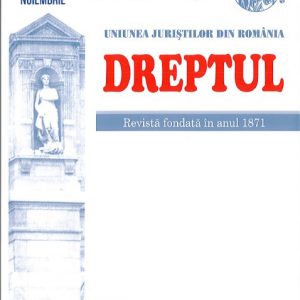 Until the entry into force of the Treaty of Lisbon, the citizens of the Member States of the European Union were participating in the democratic life of the European Union by their recognized right to submit petitions to the European Parliament and the right to address the European Ombudsman. The Treaty on the European Union (TEU) reinforces the citizenship of the Union and enhances the democratic functioning of the Union providing, among others, that every citizen must have the right to participate in the democratic life of the Union through a European citizens’ initiative. This procedure gives the citizens the opportunity to directly contact the European Commission, by presenting to the Commission an application whereby it is invited to initiate a proposal for a legislative act of the Union in view of implementing the Treaties, the procedure being similar to the right conferred to the European Parliament under Article 2251 of the Treaty on the functioning of the European Union (TFEU) and on the right conferred to the Council under Article 2412 of the TFEU.
Until the entry into force of the Treaty of Lisbon, the citizens of the Member States of the European Union were participating in the democratic life of the European Union by their recognized right to submit petitions to the European Parliament and the right to address the European Ombudsman. The Treaty on the European Union (TEU) reinforces the citizenship of the Union and enhances the democratic functioning of the Union providing, among others, that every citizen must have the right to participate in the democratic life of the Union through a European citizens’ initiative. This procedure gives the citizens the opportunity to directly contact the European Commission, by presenting to the Commission an application whereby it is invited to initiate a proposal for a legislative act of the Union in view of implementing the Treaties, the procedure being similar to the right conferred to the European Parliament under Article 2251 of the Treaty on the functioning of the European Union (TFEU) and on the right conferred to the Council under Article 2412 of the TFEU. -
 In this study, the author examines Article 11 paragraph (4) the first subparagraph of the Treaty on the European Union concerning the citizens’ initiative, which provides that „Not less than one million citizens who are nationals of a significant number of Member States may take the initiative of inviting the European Commission, within the framework of its powers, to submit any appropriate proposal on matters where citizens consider that a legal act of the Union is required for the purpose of implementing the Treaties.” In this regard, after the statutory procedure in this matter is indicated, there are described the various citizens’s initiatives promoted up to the present.
In this study, the author examines Article 11 paragraph (4) the first subparagraph of the Treaty on the European Union concerning the citizens’ initiative, which provides that „Not less than one million citizens who are nationals of a significant number of Member States may take the initiative of inviting the European Commission, within the framework of its powers, to submit any appropriate proposal on matters where citizens consider that a legal act of the Union is required for the purpose of implementing the Treaties.” In this regard, after the statutory procedure in this matter is indicated, there are described the various citizens’s initiatives promoted up to the present. -
 In this study we intend to discuss and to find a solution for the multiple aspects specific to the removal of application of the foreign law in the national law, but also to trace the influences of the European law on the domestic law. We will analyze in detail the independence of application of the foreign law from the condition of reciprocity, invoking the foreign law before the authorities of the forum, but also aspects concerning the contractual incorporation of the foreign law. We will define the notion of application of the foreign law and, likewise, we will subject to investigation the modalities in which this application occurs. In order to elaborate this study we will consider the relevant domestic law, the provisions of the international conventions concerning the application of the foreign law, the provisions in the matter of the European law, the legislation and the case law from different States, and we will raise for discussion the decision of the Constitutional Court of Romania No 294/2016 relating to the rejection of the plea of unconstitutionality of the provisions of Article 1.096 (1) c) of the Civil Procedure Code, which gives us a practical view on the subject-matter discussed.
In this study we intend to discuss and to find a solution for the multiple aspects specific to the removal of application of the foreign law in the national law, but also to trace the influences of the European law on the domestic law. We will analyze in detail the independence of application of the foreign law from the condition of reciprocity, invoking the foreign law before the authorities of the forum, but also aspects concerning the contractual incorporation of the foreign law. We will define the notion of application of the foreign law and, likewise, we will subject to investigation the modalities in which this application occurs. In order to elaborate this study we will consider the relevant domestic law, the provisions of the international conventions concerning the application of the foreign law, the provisions in the matter of the European law, the legislation and the case law from different States, and we will raise for discussion the decision of the Constitutional Court of Romania No 294/2016 relating to the rejection of the plea of unconstitutionality of the provisions of Article 1.096 (1) c) of the Civil Procedure Code, which gives us a practical view on the subject-matter discussed. -
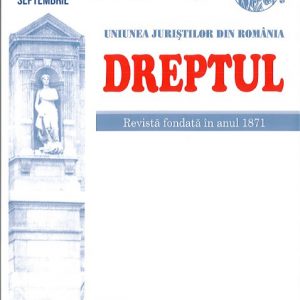 This study raises the question of registration in the land register of some rights which originate in the fact of artificial real estate accession. We were interested to note the extent to which the parties might, by their agreement, temporarily register a property right of the author of the construction over this construction until the land owner invokes the accession in its favour. It is raised the question of the interest of such registration, which can only be temporary, because the doctrine has considered it to be affected by an atypical resolutory condition, of legal origin, as well as of the effect produced by this registration. On the other hand, in the situations where we admit the acquiring of the property right by artificial real estate accession by judicial means, it is required the analysis of the possibility of the court to recognize a property right over a construction built without a construction authorisation.
This study raises the question of registration in the land register of some rights which originate in the fact of artificial real estate accession. We were interested to note the extent to which the parties might, by their agreement, temporarily register a property right of the author of the construction over this construction until the land owner invokes the accession in its favour. It is raised the question of the interest of such registration, which can only be temporary, because the doctrine has considered it to be affected by an atypical resolutory condition, of legal origin, as well as of the effect produced by this registration. On the other hand, in the situations where we admit the acquiring of the property right by artificial real estate accession by judicial means, it is required the analysis of the possibility of the court to recognize a property right over a construction built without a construction authorisation.
